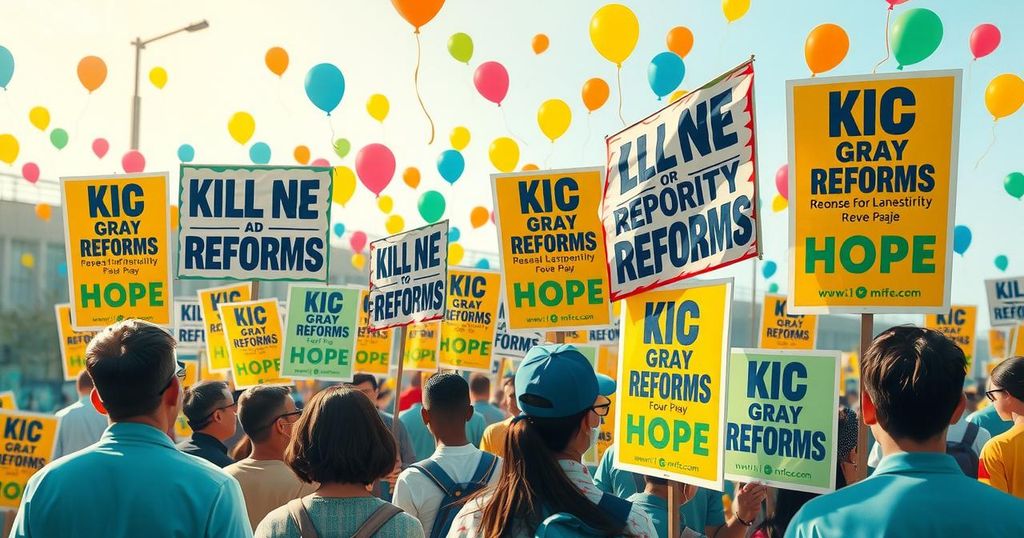Colombia’s President Calls for Special Election Amid Reform Struggles

Colombian President Gustavo Petro calls for a special election to support his stalled labor and health reforms, urging citizens to resist centrist and right-wing opposition. Thousands attended a rally where he criticized lawmakers and emphasized the importance of public mobilization. However, political analysts express doubt about achieving necessary voter turnout, while his proposed reforms continue to face legislative setbacks and criticism regarding their feasibility.
In a recent rally in Bogota, President Gustavo Petro of Colombia urged his supporters to stand against centrist and right-wing politicians hindering crucial health and labor reforms. As the nation approaches elections, Petro described opposition lawmakers as “monarchs and tyrants” who exploit the populace due to their greed. His drive for reform is hampered by his Historical Pact movement, which holds only a fifth of Senate seats.
To galvanize support, President Petro declared a day off for national government workers, encouraging their participation in protests advocating for a special election. Thousands gathered at Bogota’s Bolivar Square to voice support, where Petro passionately called for voters to penalize representatives working against the interests of the people, claiming their actions were motivated by corruption.
The proposed special election, known as a popular consultation, will require Senate approval and mandates participation from one third of registered voters to enact any results. Political experts express skepticism regarding the feasibility of mobilizing sufficient voter turnout. Although Petro’s 2022 election secured him 11.2 million votes, persuading a larger audience for this initiative presents a significant challenge.
Analysts suggest that the special election could rally Petro’s base prior to congressional elections in March, allowing the government to utilize public funds for campaigning. However, some view it as an attempt to deflect criticism regarding the administration’s inability to achieve consensus in Congress. During the 2022 campaign, Petro pledged to reform Colombia’s healthcare by replacing insurance companies with a state-run system, aimed at addressing corruption in financial management.
Despite Petro’s efforts, his healthcare legislation has repeatedly faced rejection, with critics asserting it would grant excessive control to government entities. Additionally, the proposed labor reforms intended to improve work conditions and increase pay for night workers were postponed during a pivotal committee vote, drawing apprehension about higher unemployment due to increased hiring costs. Given that over 55% of Colombians are employed informally without contracts, detractors argue that Petro’s proposals lack incentives for these workers to transition to formal employment.
In conclusion, President Gustavo Petro’s push for labor and health reforms in Colombia faces significant obstacles amid increasing political opposition. His call for a special election aims to mobilize public support but encounters skepticism regarding voter turnout. Furthermore, the challenges surrounding proposed legislation reflect broader issues within the Colombian economy, especially regarding informal employment. As the nation heads towards future elections, the effectiveness of Petro’s strategies remains uncertain.
Original Source: www.washingtonpost.com







